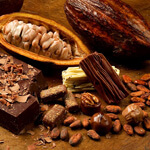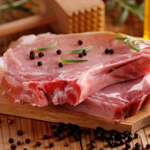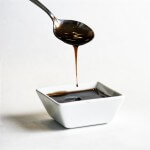 Statistics show that approximately 10 percent of the American population suffers from depression, and that number is on the increase. While most of these people suffer from sporadic bouts of depression, others often endure it their whole lives. Consequently, many of them resort to antidepressants to alleviate their low moods – drugs which have notorious side effects and can, in many cases, render them zombie-like and detached from reality.
Statistics show that approximately 10 percent of the American population suffers from depression, and that number is on the increase. While most of these people suffer from sporadic bouts of depression, others often endure it their whole lives. Consequently, many of them resort to antidepressants to alleviate their low moods – drugs which have notorious side effects and can, in many cases, render them zombie-like and detached from reality.
Fortunately, the natural world is bursting with foods that contain mood-boosting properties. The best-known of these is the banana, though asparagus, eggs and most leafy green vegetables are also appreciated in this regard. However, studies continue to show that the greatest mood boosters – foods that not only lift our minds from the quagmire of depression but also heal and refine them – are the following superfoods from South America and Asia.
Cacao
Cacao, nicknamed the “Food of the Gods” in its native South America, has always been cherished for its mood-boosting properties, and science now understands why: Cacao contains a large number of agents that increase the production of several feel-good chemicals in the brain such as dopamine and serotonin. Furthermore, according to a study conducted by researchers at the Brain Sciences Institute at Swinburne University in Australia, the flavanols in cacao can “positively influence physiological processes in ways that suggest their consumption may improve aspects of cognitive function.” In other words, cacao improves mental clarity as well as mood. This makes cacao an especially good choice for depressed people, since depression is often characterized by (and in some cases, persistent due to) brain fog.
Though cacao nibs can be eaten raw, most people prefer to consume cacao in powdered form.
Maca
According to a study published in the Complementary and Alternative Medicine journal, consumption of maca – another nutritious South American superfood – can reduce feelings of hopelessness associated with depression. The researchers believe this is due to maca’s concentrations of phytoestrogens, which help balance hormones in men and women. Moreover, maca has been linked to improved brain function and memory, and is also a proven natural energizer. This makes it an especially great choice for people whose depression might be linked to lethargy – maca literally forces you to be more active!
Maca is best consumed in gelatinized powder form, starting with very small doses. “Gelatinized” maca is simply maca that’s had its starches removed, making it easier to digest. This is actually how the native Incas consumed maca; it was almost never eaten raw.
Bacopa Monnieri
Bacopa monnieri (sometimes called brahmi) is a thick-leafed herb native to Asia. It is regarded as the perfect “brain food” according to the Ayurveda, which has recommended it for treating countless mind- and mood-related conditions for centuries.
Virtually all scientific studies into bacopa confirm the assertions of the Ayurveda. For example, one study presented at the International Brain Research Conference in 1996 proved that long-term bacopa consumption could improve learning times by almost 50 percent, while another study by Australian researchers at the University of Wollongong in New South Wales confirmed that bacopa significantly improves memory and recall abilities. Equally as significant is the research confirming that bacopa contains chemical properties that support the effects of mood-boosting neurotransmitters such as acetylcholine and serotonin.
Like cacao and maca, bacopa powder doesn’t taste nice, and it is probably best consumed in vegetable capsule form (or, if you have a blender, mixed into a smoothie). Unlike cacao and maca, whose mood-boosting properties tend to be felt quickly, bacopa tends to reward patience; even in the studies listed above, it was rare for subjects to experience bacopa’s psychological benefits within the first month of regular consumption.






